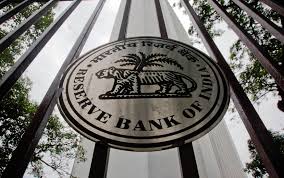
From April 1, chartered accountants (CAs), merchant bankers and valuers can’t escape responsibility for filing of incorrect information in certificates or reports attached with income tax returns of assessees.

From April 1, chartered accountants (CAs), merchant bankers and valuers can’t escape responsibility for filing of incorrect information in certificates or reports attached with income tax returns of assessees.
 Foreign law and accountancy firms now have a chance to operate in India on their own. On January 3, the ministry of commerce and industry amended a rule allowing such foreign firms to set up offices and advise clients from SEZs. The move will initially benefit Gujarat International Finance Tec-City (GIFT).
Foreign law and accountancy firms now have a chance to operate in India on their own. On January 3, the ministry of commerce and industry amended a rule allowing such foreign firms to set up offices and advise clients from SEZs. The move will initially benefit Gujarat International Finance Tec-City (GIFT).
Current regulations so far do not permit multinational law firms to operate in the country. Indian law and accountancy firms were also not allowed to operate from any of the SEZs. That rule has now been amended which would benefit financial centres.
The notification, dated January 6 but issued on January 3, by the department of commerce allows foreign law and accountancy firms to be established in SEZs. The earlier version of the rule, prior to the amendment, had excluded legal services and accounting.
“This will be the big enabler for the legal and accounting firms to expand their services in multi-services SEZ with IFSC (International Finance Service Centre) and thereby export their services to various global players,” said Nitin Potdar, partner, J Sagar, a law firm. As of now, only GIFT is a multi-services SEZ with an IFSC in India.
“Until now, no foreign law firm could operate in India and not even Indian firms were allowed to provide their services in any of the SEZs. The new amendment allows not only Indian law or accountancy firms to set up a base in GIFT, but even multinationals can directly advise upon international disputes or arbitration by setting up a base there,” Dipesh Shah, head, IFSC at GIFT, told ET.
While many foreign professional services firms such as Deloitte, PwC, KPMG and EY are present in India, they cannot directly operate as auditors and require an Indian affiliate. This amendment does away with that requirement at least in the case of GIFT.
Many Indian law firms have been opposing the entry of multinational law firms in India for some time. Going ahead, many multinationals could set up base in India but they will only be able to advise on cross-border transactions or disputes. Some are also looking to quickly take advantage of this and set up base in GIFT.
“Allowing law firms in GIFT for arbitration or other work would work as a catalyst for economic activities in the country. We ourselves are in discussions to set up an office in GIFT,” said Nishith Desai, founder of law firm Nishith Desai Associates.
But the amendment does not permit foreign law firms to advise Indian clients on local businesses and regulations. Their advice and help would be strictly restricted to arbitrations fought in GIFT, international mergers and acquisitions, international taxation or any other advice for operations outside India.
Industry experts say some foreign law firms may consider partnerships with Indian firms under the arrangement. There could also be stiff competition as both Indian and foreign firms would compete for the same clients in GIFT.
“Many law firms may set up their base in GIFT but that would take some time. And I am a firm believer that it would only lead to betterment of all law firms,” said Desai.
Source: http://economictimes.indiatimes.com/articleshow/56529046.cms
 The Companies Act, 2013, has introduced important audit reforms. One of the important reforms is rotation of the auditor.
The Companies Act, 2013, has introduced important audit reforms. One of the important reforms is rotation of the auditor.
Important provisions under this reform
Benefits of this reform
Local auditors v/s the Big Four
Should the government intervene?
Way ahead and Conclusion
Chartered accountants are prohibited from soliciting professional work through advertisement or otherwise. But they can respond to tenders.
It will be interesting to see how the new rules regarding rotation of auditors will actually impact the auditing profession.
In a move that signals the government’s intent to allow foreign audit firms to register and operate directly in the Indian market, the Ministry of Corporate Affairs has written to the Institute of Chartered Accountants of India (ICAI) to seek its views and recommendations on the government proposal.
Currently, Indian laws don’t allow any multinational accounting firm to be registered in India as auditors. The thinking within the government is that as part of an ongoing reforms process, the services sector should also be liberalised and global auditing firms could be allowed to operate directly here to make the profession more competitive and robust.
The ministry has written to the institute on August 10, said ICAI president M Devaraja Reddy . The institute is set to discuss this proposal in a meeting to be held on August 24 and then respond to the the request, he added.
The government will have to amend the Chartered Accountants Act, 1949 that regulates the accounting profession in India to allow foreign firms to operate in India.
Currently, MNC professional services firms that offer auditing services in India, including the Big Four – EY, PwC, Deloitte and KPMG – audit Indian companies through a bunch of their network or affiliate firms.
Though for all internal purposes, the accounting practice in any of the Big Four is treated just as any other practice area like tax, transactions, or advisory , but on paper, the affiliate firms are run as separate partnerships.
If the Indian government does allow direct entry, more global firms are likely to invest big in their India network and also the market could see the entry of new players.
“Given the significant exposure of global investors in Indian firms, it’s natural to ask for an auditor who they are more comfortable with. More global players will mean more choice and better quality of services. It will also enhance the credibility of Indian markets,” says the CEO of a global firm.
For Indian audit firms, the move could spell further trouble, as they have been steadily losing the most lucrative audit assignments to the Big Four over the past two decades.The four global firms now dominate the book-keeping business in India. As it is, the mandatory audit rotation brought in by the Companies Act 2013, is set to kick off from April 1, 2017 and that will further see a movement of big accounts away from Indian firms towards the Big Four and other two prominent network firms, Grant Thornton and BDO.
In major markets, the global giants have a monopoly over the audit business – 99 per cent of companies in FTSE are audited by the Big Four firms, while 86 per cent of those listed on the NYSE work with these audit firms.
But in India, 62 per cent of the BSE 500 companies, including some of India Inc’s biggest firms, are still not audited by the Big Four.For example, Reliance has had Chaturvedi & Shah as auditors for decades, L&T books have been audited by Sharp & Tannan and Hindalco had stayed on with Singhi & Co for long time.In China, the Big Four lost domination to local firms after the government brought in regulations that were unfavourable for the global players. Indian accounting firms are also betting on government regulations that will keep their interests protected.
“The government will have to find a middle ground. It will have to create a regulatory framework that allows the global firms to invest and practice, also keeping in mind the concerns of the Indian accounting firms which service a large section of Indian companies, both big and small,” said the CEO of a leading Indian accounting firm.
 Multipurpose Empanelment Form of ICAI (MEF-ICAI), an online application, is meant for allotment of Bank / Branch Audits to the ICAI Members/ CA Firms, which can be filled and submitted at the MEFICAI website directly.
Multipurpose Empanelment Form of ICAI (MEF-ICAI), an online application, is meant for allotment of Bank / Branch Audits to the ICAI Members/ CA Firms, which can be filled and submitted at the MEFICAI website directly.
Online Multipurpose Empanelment Form (MEF) for the year 2016-17 is live at www.meficai.org. The last date for submission of online MEF Form for the year 2016-17 is 31st August, 2016 and for submission of hard copy of “DECLARATION FOR MEF 2016-17” is 12th September, 2016.
In case, an applicant faces any problem regarding MEF, complaint may be lodged by accessing complaint-box link available on www.meficai.org
In case, the complaint is not resolved or replied within a week, members can call at 011-30110444, 30110411, 30110440, 30110480, 30110438, 30110451 and 30110508 (between 3.00 PM to 5.00 PM on all working days).
With kind regards,
Prafulla Premsukh Chhajed
Chairman, Professional Development Committee
ADVISORY FOR FILLING MULTIPURPOSE EMPANELMENT FORM 2016-17
Releasing this information, obtained through a portal complaint, Delhi-based Right to Information activist Subhash Chandra Agrawal said on Friday that it is significant to note that the RBI has not so far complied with the Supreme Court order of December 12, 2015, in the RBI vs PP Kapoor (Civil 94 of 2015) case, where it wanted the RBI to make public details of the top 100 loan defaulters among industrialists. The details required including the names of the businessmen, firm name, principal amount, interest amount, date of default, and date of availing the loan. In a June 24 letter addressed to Agrawal in response to his PG Portal complaint dated April 24, the RBI said it has submitted to the Supreme Court a list of defaulters above Rs. 500 crore in a sealed cover and claimed that the said information is confidential and requested that it may not be revealed to the public. The matter is still under consideration of the Supreme Court.
Submit data on loan defaulters to credit information firms, RBI tells banks
 The Reserve Bank of India has advised banks and financial institutions to submit data on defaulting borrowers from December 2014 onwards to Credit Information Companies (CICs) and not to the RBI.
The Reserve Bank of India has advised banks and financial institutions to submit data on defaulting borrowers from December 2014 onwards to Credit Information Companies (CICs) and not to the RBI.